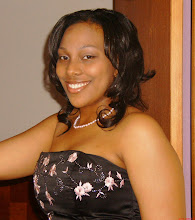FROM THE FRONTIER OF WRITING
The tightness and the nilness round that space
when the car stops in the road, the troops inspect
its make and number and, as one bends his face
towards your window, you catch sight of more
on a hill beyond, eyeing with intent
down cradled guns that hold you under cover
and everything is pure interrogation
until a rifle motions and you move
with guarded unconcerned acceleration--
a little emptier, a little spent
as always by that quiver in the self,
subjugated, yes, and obedient.
So you drive on to the frontier of writing
where it happens again. The guns on tripods;
the sergeant with his on-off mike repeating
data about you, waiting for the squawk
of clearance; the marksman training down
out of the sun upon you like a hawk.
And suddenly you're through, arraigned yet freed,
as if you'd passed from behind a waterfall
on the black current of a tarmac road
past armor-plated vehicles, out between
the posted soldiers flowing and receding
like tree shadows into the polished windscreen.
Commentary:
In Seamus Heaney's From the Frontier of Writing, Heaney uses images of war to develope the conceit of comparing the process of a writer getting his or her work read by someone else to the frontier of a war battlefield.
The first three stanzas of the poem express the speaker's feeling when his he gives his work to someone to be read and critiqued. He uses the image of someone driving through or past the frontier to represent how he feels when his work is being read. He says "when the car stops in the road, the troops inspect its make and number and, as one bends his face towards your window," which is a metaphor to how the reader reads the work. The reader gets the work and looks closely at it to pick it apart and finding literal and metaphoric meanings, as do the troops at the frontier of a battlefield when passersby come about. He also uses the image of hawks when he says, "the marksman training down out of the sun upon you like a hawk." This quotation compares critics to hawks, which implies that critics are feared creatures who swoop down and kill their prey, which are poems and writers.
This war imagery also makes it seem as if the speaker views critics as bad people because he says "eyeing with intent," meaning that the critics have an ulterior motive for reading the work because the word "eyeing" connotes suspicion and evilness, while the word "intent" means reason and motive. He also says "everything is pure interrogation." Interrogation is something viewed as annoying, menacing, and unwanted. He feels that critics interrogate a work as frontier troops interrogate those passing through.
Subscribe to:
Post Comments (Atom)

1 comment:
I agree with the thesis of your plog. Reading "From the Frontier of Writing" I understood the poem as being as conceit which was created to explain the difficult process of writing and getting your writing reviewed. Heaney uses war as the image which writing is compared to. War is perceived as a negative struggle. In your commentary you pointed out how people from the outside judging the work of the speaker is a very bad, unpleasant process. Your plog successfully defends your thesis and I agree with the points made!
Post a Comment